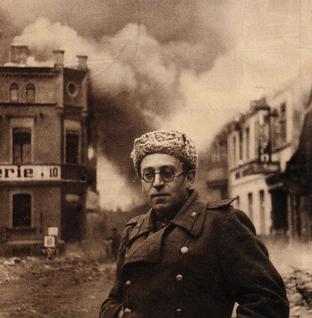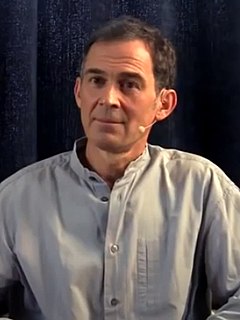A Quote by Josef Pieper
Repose, leisure, peace, belong among the elements of happiness. If we have not escaped from harried rush, from mad pursuit, from unrest, from the necessity of care, we are not happy. And what of contemplation? Its very premise is freedom from the fetters of workaday busyness. Moreover, it itself actualizes this freedom by virtue of being intuition.
Related Quotes
The history of humanity is the history of human freedom...Freedom is not, as Engels thought, "the recognition of necessity." Freedom is the opposite of necessity. Freedom is necessity overcome. Progress is, in essence, the progress of human freedom. Yes, and after all, life itself is freedom. The evolution of life is the evolution of freedom.
America touts itself as the land of the free, but the number one freedom that you and I have is the freedom to enter into a subservient role in the workplace. Once you exercise this freedom you’ve lost all control over what you do, what is produced, and how it is produced. And in the end, the product doesn’t belong to you. The only way you can avoid bosses and jobs is if you don’t care about making a living. Which leads to the second freedom: the freedom to starve.
The Americans speak so much about freedom in their sermons. Freedom as a possession is a doubtful thing for a church; freedom must be won under the compulsion of a necessity. Freedom for the church comes from the necessity of the Word of God. Otherwise it becomes arbitrariness and ends in a great many new ties.
Your Self, Aware Presence, knows no resistance to any appearance and, as such, is happiness itself; like the empty space of a room it cannot be disturbed and is, therefore, peace itself; like this page, it is intimately one with whatever appears on it and is thus love itself; and like water that is not affected by the shape of a wave, it is pure freedom. Causeless joy, imperturbable peace, love that knows no opposite and freedom at the heart of all experience....this is your ever-present nature under all circumstances.
The peace we seek in the world is not the flimsy peace which is merely an interlude between wars, but a peace which can endure for generations to come. It is important that we understand both the necessity and the limitations of America's role in maintaining that peace. Unless we in America work to preserve the peace, there will be no peace. Unless we in America work to preserve freedom, there will be no freedom.
In the same manner, having been reduced by disorder, and sunk to their utmost state of depression, unable to descend lower, they, of necessity, reascend; and thus from good they gradually decline to evil, and from evil again return to good. The reason is, that valor produces peace; peace, repose; repose, disorder; disorder, ruin; so from disorder order springs; from order virtue, and from this, glory and good fortune.
The economic freedom which is the prerequisite of any other freedom cannot be the freedom from economic care which the socialist promise us, and which can be obtained only by relieving the individual at the same time of the necessity and of the power of choice: it must be the freedom of economic activity which, with the right of choice, inevitably also carries the risk and the responsibility of that right
No matter how many possessions we acquire, they will not provide us with any lasting happiness and freedom. On the contrary, it is often our pursuit of material possessions that causes our problems. If we want ultimate happiness and freedom from suffering, we must engage in the supreme practices of training the mind. There is no other way.








































